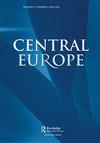IF 0.1
2区 历史学
Q2 HISTORY
引用次数: 1
摘要
才华横溢、时刻准备着的Kálmán szimassll(1843-1915)在开始他的公共服务事业的过程中,得到了他有影响力的父亲József szimassll(1801-1871)的社会网络的极大帮助,特别是他与Ferenc的密切关系Deák。Deák,这位1867年殖民地的象征人物,在szacei男孩还是孩子的时候就认识他们了。然而,Kálmán szimassll与Deák的关系在1867年秋天真正得到巩固,当时他娶了Ilona Vörösmarty, Ilona是匈牙利最受欢迎的诗人之一的女儿,也是Deák的养女,在1855年她父亲Mihály Vörösmarty去世后,Deák负责照顾这个女孩的健康。在1867-1868年,年轻的szsamir的事业是否因为婚礼和他与Deák的亲密关系而起飞,或者它会发生在无关紧要的情况下?为这个复杂的问题提供一个完全客观的答案当然是不可能的,但通过分析婚姻的前因后果,环境和后果,我们能够提供一个更细致入微的画面。毫无疑问,szacimll的职业道路由于他与Deák的密切关系而更加顺畅,这为他的职业发展提供了快速的机会。然而,如果没有天赋、决心和勤奋,他将无法忍受匈牙利国家政治的考验和磨难。我们最好的做法是采取两种极端的立场——人脉广泛的野心家与“自力更生”的白手起家者——并将Kálmán szacima尽可能地放在中间。本文章由计算机程序翻译,如有差异,请以英文原文为准。
Family Background, Preparation and Opportunity: The Making of the Dualist-Era Hungarian Minister, Kálmán Széll
Abstract In getting his career in public service off the ground, the talented and ever-ready Kálmán Széll (1843–1915), was helped significantly by his influential father József Széll’s (1801–1871) social network, specifically his close relationship with Ferenc Deák. Deák, the emblematic figure of the 1867 Settlement had known the Széll boys since they were children. However, Kálmán Széll’s relationship to Deák was truly solidified in autumn 1867, when he married Ilona Vörösmarty, the daughter of one of the most popular poets in Hungary and the ward of Deák, who had taken responsibility for the girl’s wellbeing in 1855, upon the death of her father Mihály Vörösmarty.Did young Széll’s career take off in 1867–1868 because of the wedding and his closeness to Deák, or would it have occurred irrespective? Providing a completely objective answer to this complicated question is of course impossible, but by analyzing the antecedents, circumstances and consequences of the marriage, we are able to provide a more nuanced picture. No doubt Széll’s career path was made smoother by his close relationship to Deák, which, provided the opportunity for fast career advancement. However, without talent, determination and hard work, he would not have been able to endure the trials and tribulations of Hungarian national politics. Our best course of action is to take the two extreme positions – well-connected careerist versus the “up by the bootstraps” self-made man – and placing Kálmán Széll as close to the center as possible.
求助全文
通过发布文献求助,成功后即可免费获取论文全文。
去求助
来源期刊

Central Europe
HISTORY-
CiteScore
0.20
自引率
0.00%
发文量
7
期刊介绍:
Central Europe publishes original research articles on the history, languages, literature, political culture, music, arts and society of those lands once part of the Habsburg Monarchy and Poland-Lithuania from the Middle Ages to the present. It also publishes discussion papers, marginalia, book, archive, exhibition, music and film reviews. Central Europe has been established as a refereed journal to foster the worldwide study of the area and to provide a forum for the academic discussion of Central European life and institutions. From time to time an issue will be devoted to a particular theme, based on a selection of papers presented at an international conference or seminar series.
 求助内容:
求助内容: 应助结果提醒方式:
应助结果提醒方式:


